When it comes to teaching kids about the important roles community helpers play in our daily lives, hands-on activities are a fantastic way to engage and educate. These activities not only spark curiosity but also help children understand and appreciate the various professions that keep our communities safe, healthy, and functioning smoothly. Whether it’s through creative play, crafts, or interactive lessons, kids can have fun while learning about the people who make a difference in their lives.
1. Community Helper Dress-Up Day
Activity Overview:
A dress-up day allows kids to step into the shoes of their favorite community helpers. Encourage them to come dressed as firefighters, doctors, police officers, teachers, or other helpers. You can also provide simple costumes or accessories like hats, badges, or stethoscopes to enhance the experience.
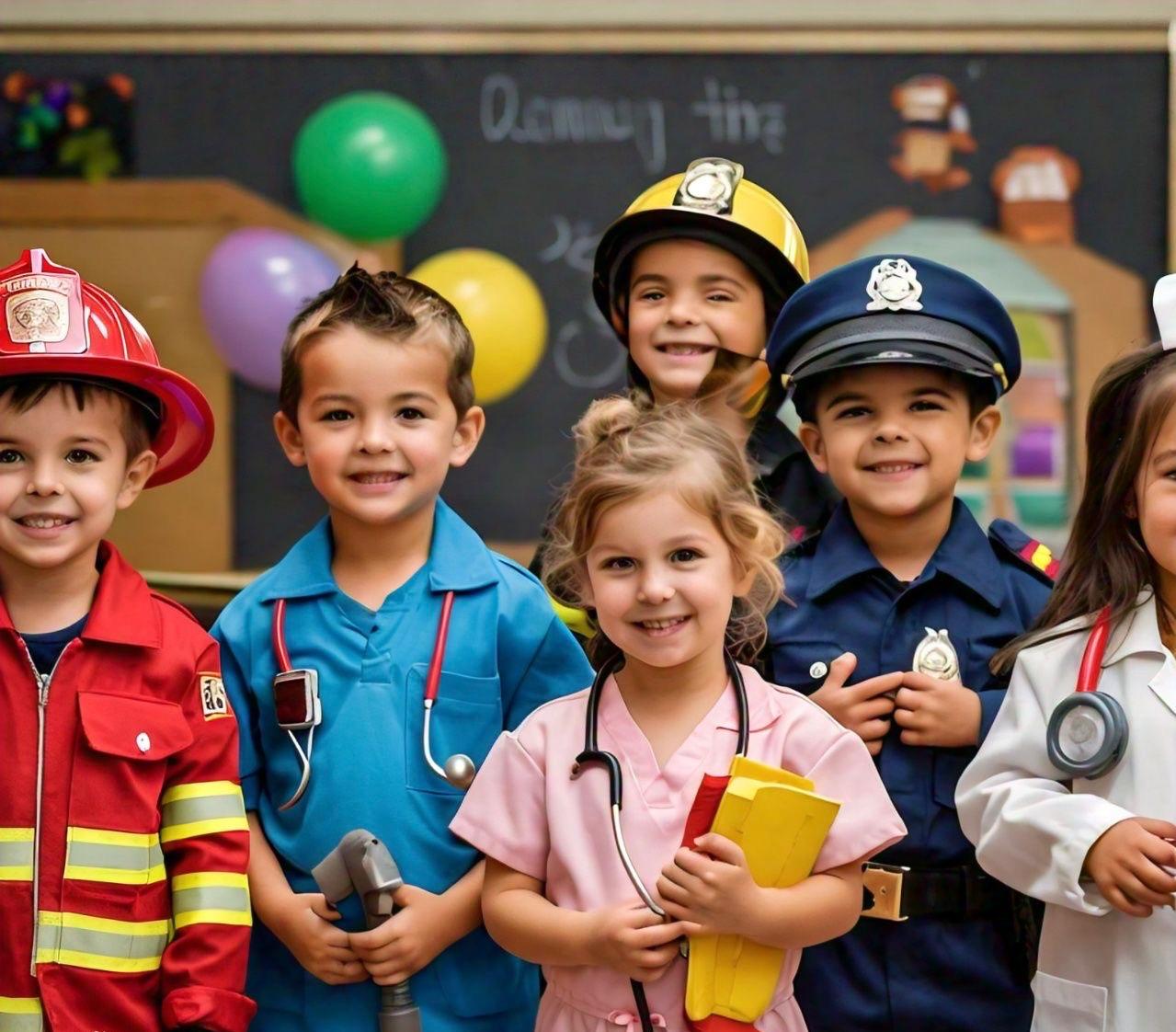
Learning Outcome:
This activity promotes role-playing, helping children to understand the duties and responsibilities of different community helpers. It also boosts their confidence and empathy as they imagine themselves in these roles.
Discussion Points:
- Why are these jobs important in our community?
- How do these helpers assist people in their daily lives?
2. Create a Community Helper Craft
Activity Overview:
Crafting is a great way to reinforce learning. Set up a craft station where kids can make simple models or drawings of community helpers. For example, they can create a fire truck using paper and glue or draw a picture of a doctor helping a patient.
Materials Needed:
- Construction paper
- Scissors
- Glue
- Markers or crayons
- Printable templates of community helpers
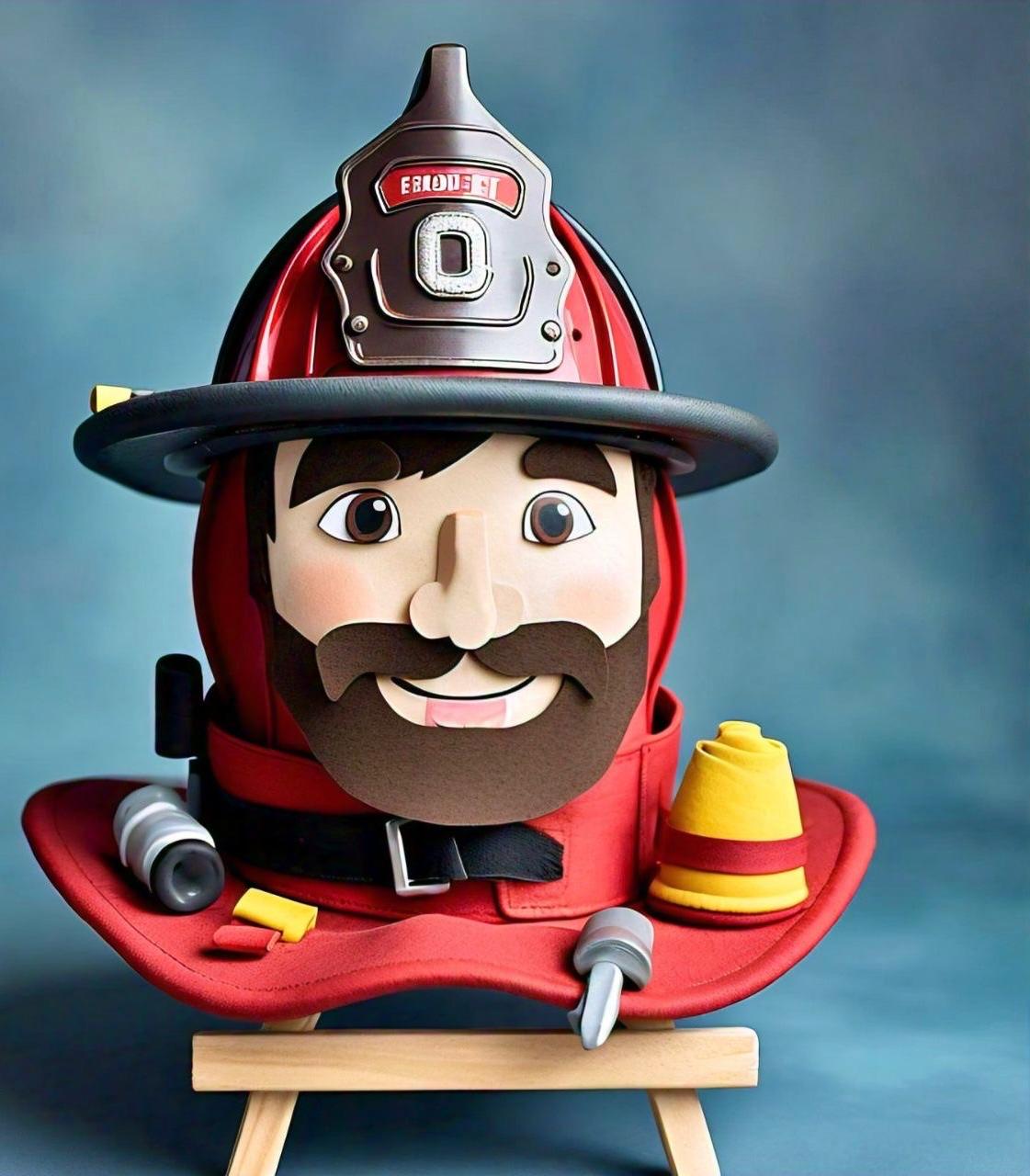
Learning Outcome:
This activity enhances fine motor skills while allowing kids to express their understanding of different community roles creatively. It’s a visual and tactile way to reinforce the importance of each helper in their community.
Discussion Points:
- What tools do these helpers use in their jobs?
- How do they help keep us safe and healthy?
3. Community Helpers Scavenger Hunt
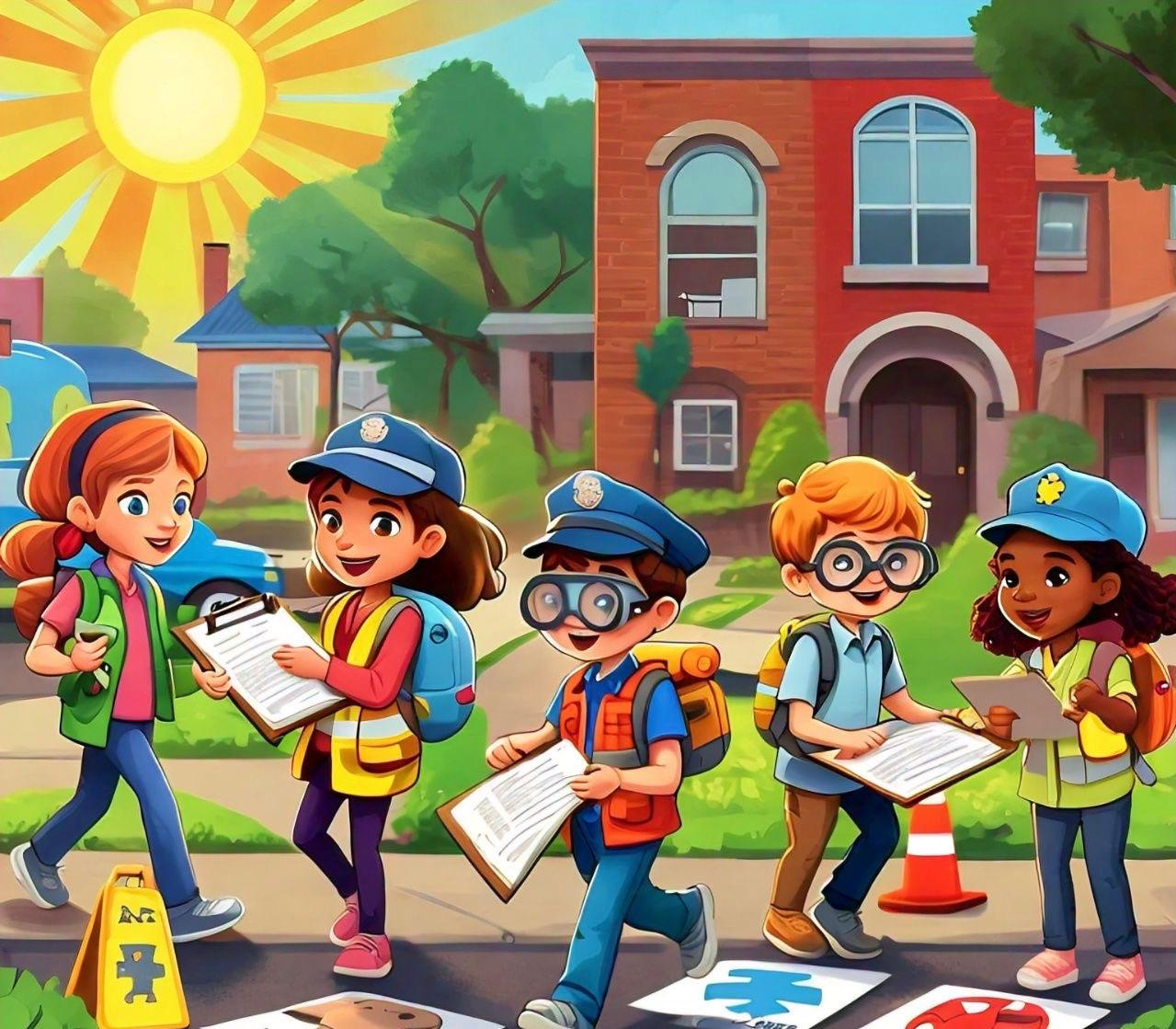
Activity Overview: Organize a scavenger hunt where kids can look for signs or symbols of community helpers around their neighborhood or classroom. For instance, they might look for a police car, a fire hydrant, a hospital sign, or a crossing guard.
Learning Outcome: This interactive activity helps children recognize and connect with the community helpers they encounter in real life. It also encourages observation skills and awareness of their surroundings.
Discussion Points:
- What did you find during the scavenger hunt?
- How do these signs or symbols relate to the helpers in our community?
4. Read-Aloud and Storytelling
Activity Overview:
Reading books about community helpers is a simple yet effective way to introduce kids to these important roles. Choose books that highlight various helpers and their contributions to the community. After reading, encourage kids to create their own stories or drawings based on the book.
Recommended Reading: Exciting STEM Challenges And Winter Science Experiments For Kids
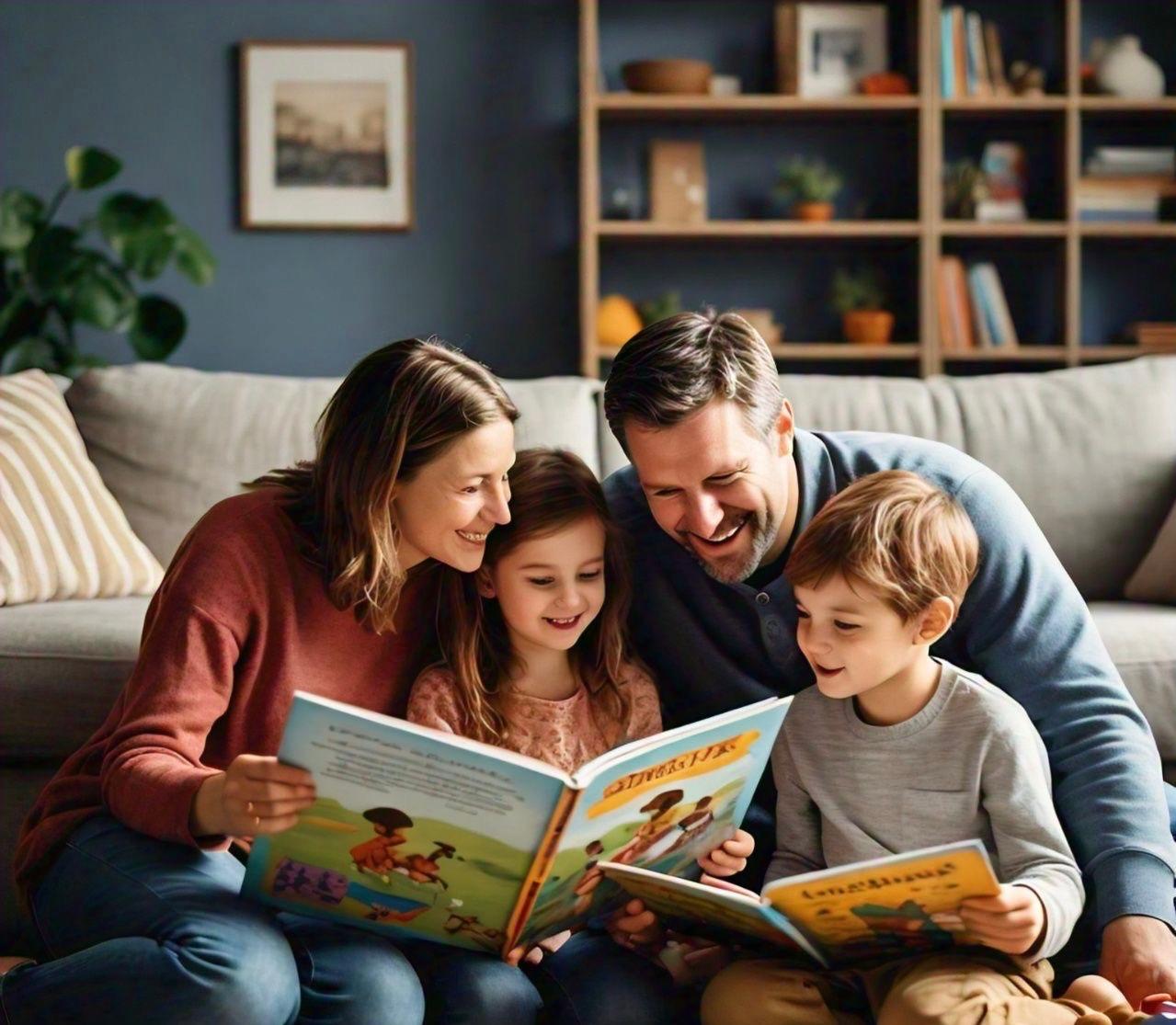
Suggested Books:
- “Firefighter Frank” by Monica Wellington
- “Doctor De Soto” by William Steig
- “Officer Buckle and Gloria” by Peggy Rathmann
Learning Outcome:
Reading and storytelling enhance language development and comprehension. Kids learn about community helpers in a narrative context, making it easier to understand their roles and significance.
Discussion Points:
- What did you learn about the community helper in the book?
- Can you think of a time when you saw a community helper at work?
5. Build a Community Helper Village with Blocks
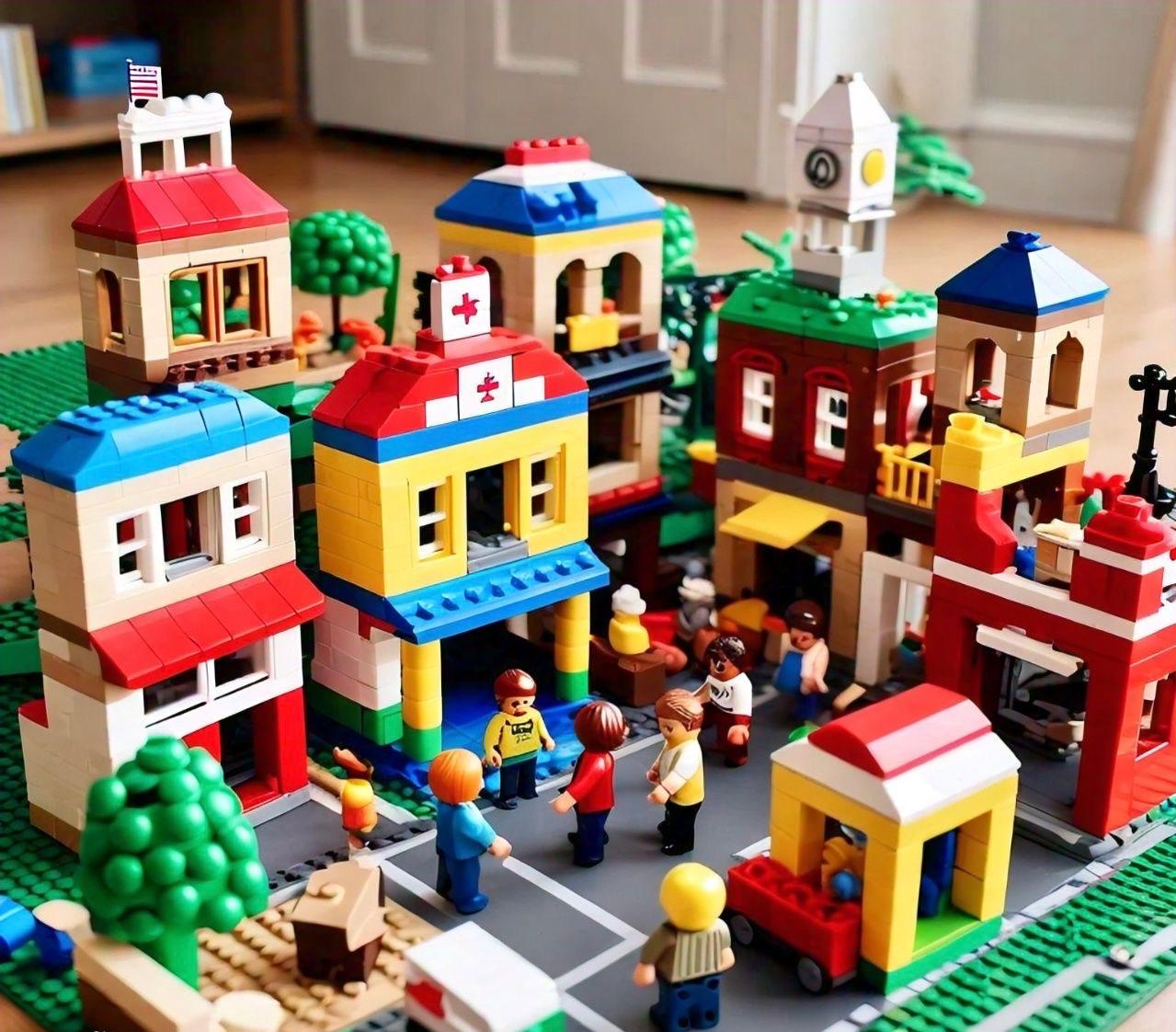
Activity Overview: Using building blocks, children can create a miniature village that includes important community buildings like fire stations, hospitals, police stations, and schools. Encourage them to think about where each community helper might work and what they do there.
Learning Outcome: This activity promotes spatial awareness, problem-solving, and creativity. It helps kids understand the layout of a community and the roles that different helpers play within it.
Discussion Points:
- Why is it important to have these buildings in our community?
- What happens in each of these places?
6. Role-Playing with Toy Sets
Activity Overview:
Use toy sets like a doctor’s kit, a police car, or a firefighter’s outfit to let kids role-play as different community helpers. Set up scenarios where they can act out their roles, such as bandaging a patient, putting out a fire, or directing traffic.
Learning Outcome:
Role-playing helps children develop empathy, social skills, and an understanding of the responsibilities of different community helpers.
Discussion Points:
- What did you do in your role today?
- How did it feel to be a community helper?
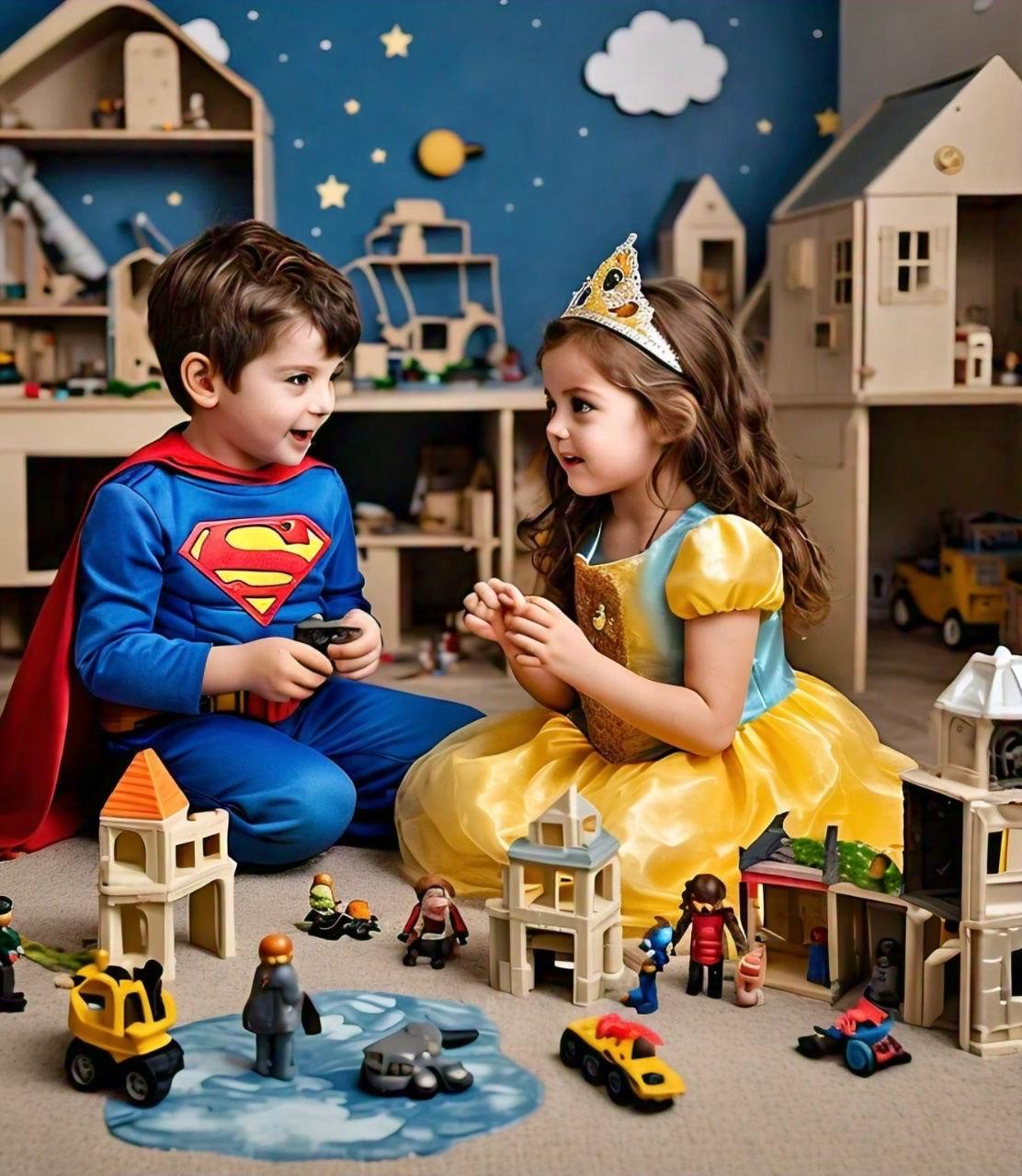
Image source: Wikipedia
7. Create a “Thank You” Card for a Community Helper

Activity Overview:
Encourage kids to create and decorate a thank-you card for a community helper of their choice. They can write a message or draw a picture showing appreciation for the helper’s work.
Materials Needed:
- Construction paper or card stock
- Crayons, markers, stickers, and other decorating materials
Learning Outcome:
This activity fosters gratitude and teaches children the importance of recognizing and appreciating the efforts of those who help others.
Discussion Points:
- Why is it important to thank community helpers?
- How do you think this card will make them feel?
8. Design a Community Helper Badge
Activity Overview:
Have children design and create their own community helper badges using paper, markers, and stickers. They can choose which community helper they want to represent and wear their badge proudly.
Materials Needed:
- Paper or card stock
- Markers, crayons, and stickers
- Safety pins or string
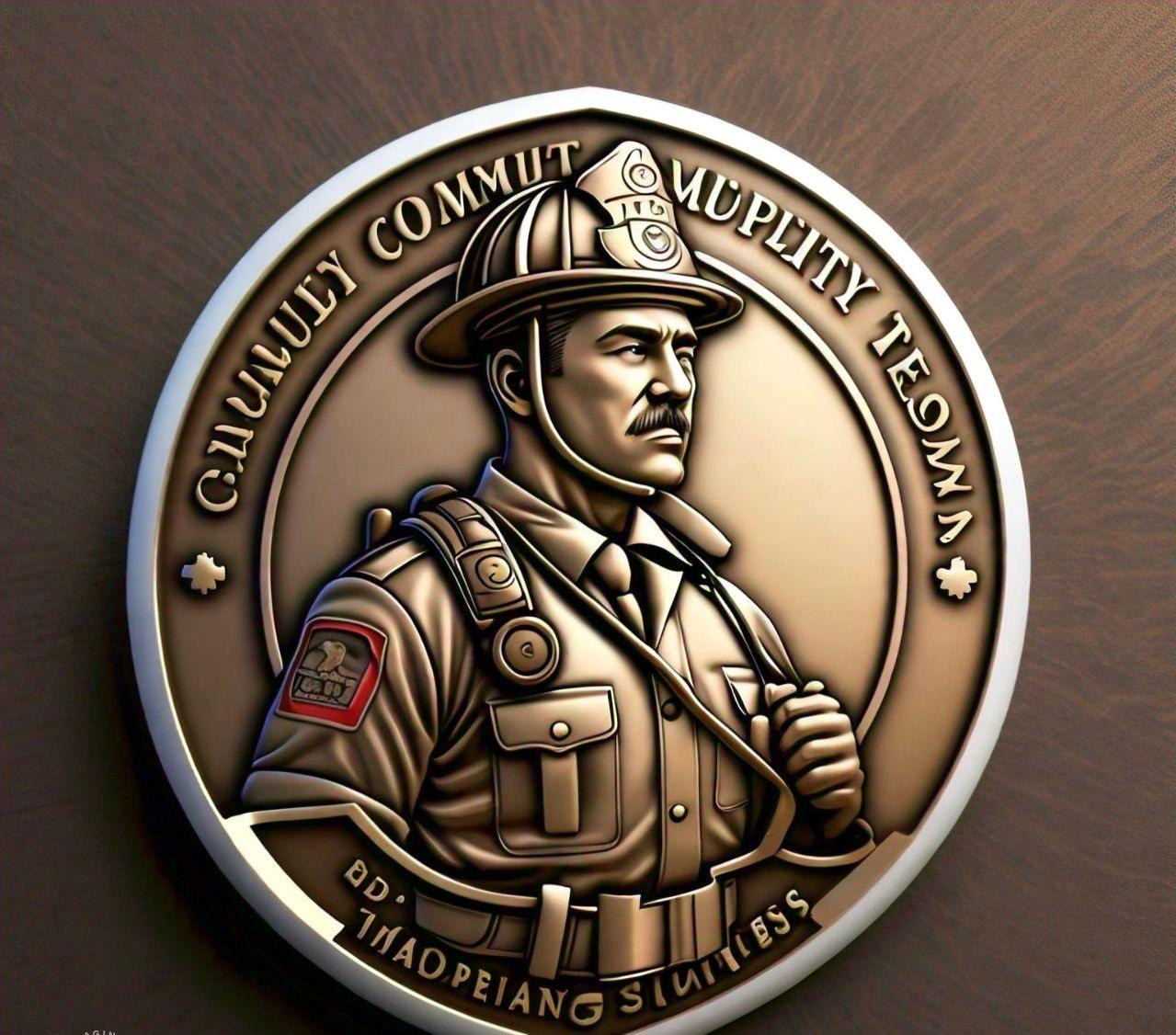
Learning Outcome:
This activity encourages creativity and allows kids to identify with the community helper role they admire most.
Discussion Points:
- What makes a good community helper?
- Why did you choose this particular helper?
9. Community Helper Puppet Show
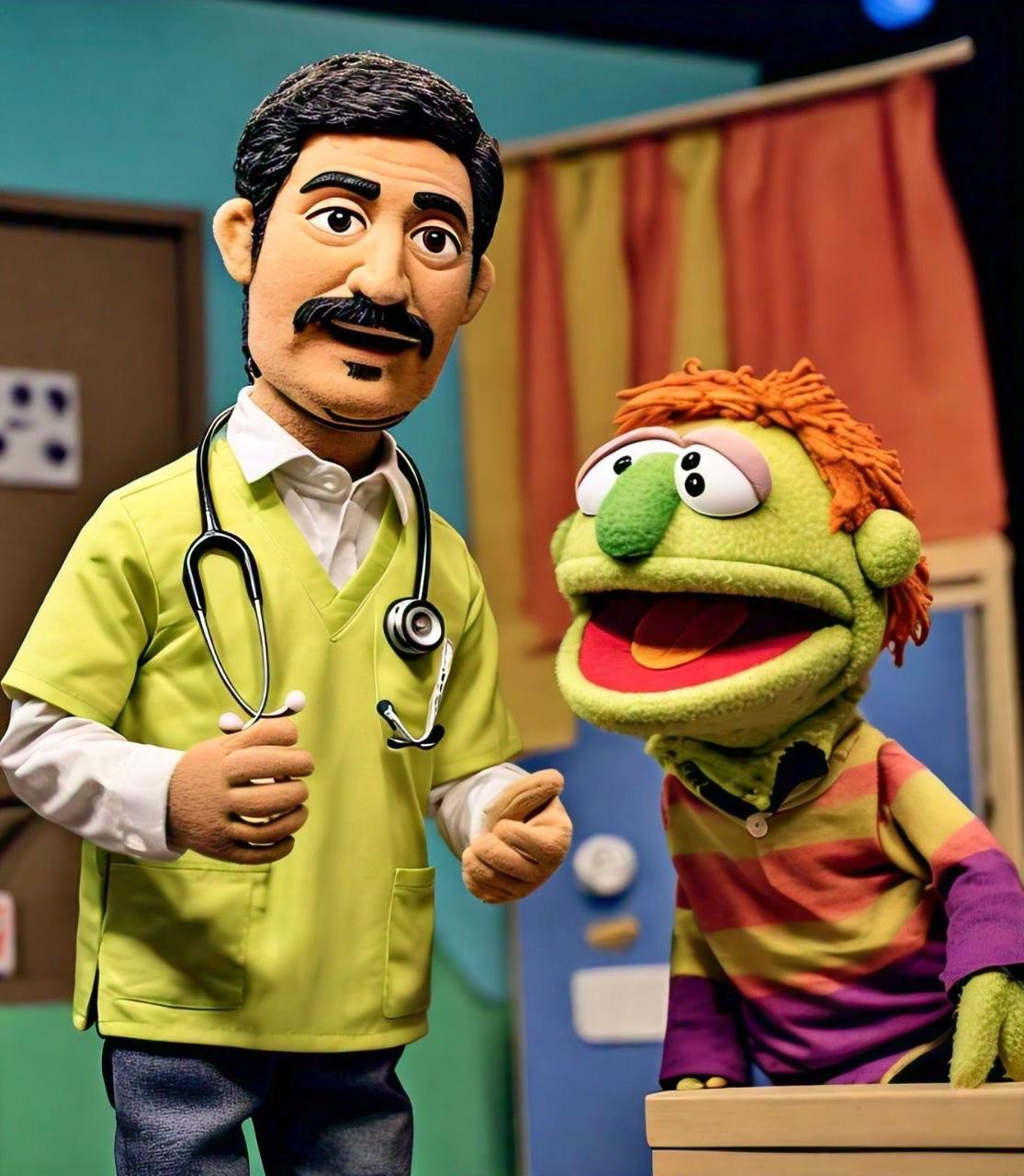
Activity Overview: Create puppets representing different community helpers and have the kids put on a puppet show. They can create stories where the helpers work together to solve problems or help people in the community.
Materials Needed:
- Sock or paper bag puppets
- Craft materials to decorate the puppets (googly eyes, fabric, markers)
- A small stage or area for the puppet show
Learning Outcome:
This activity promotes storytelling, teamwork, and an understanding of how community helpers collaborate to keep everyone safe and healthy.
Discussion Points:
- How did the community helpers work together in your story?
- What problems did they solve?
10. Community Helper Show-and-Tell
Activity Overview:
Invite children to bring in items related to a community helper role, such as a toy fire truck, a play doctor kit, or a picture of a police station. During show-and-tell, they can explain what the item is and how it’s used by the helper.
Learning Outcome:
This activity builds public speaking skills, boosts confidence, and deepens understanding of community helper roles through personal connections.
Discussion Points:
- Why did you choose this item?
- How does it help the community helper do their job?
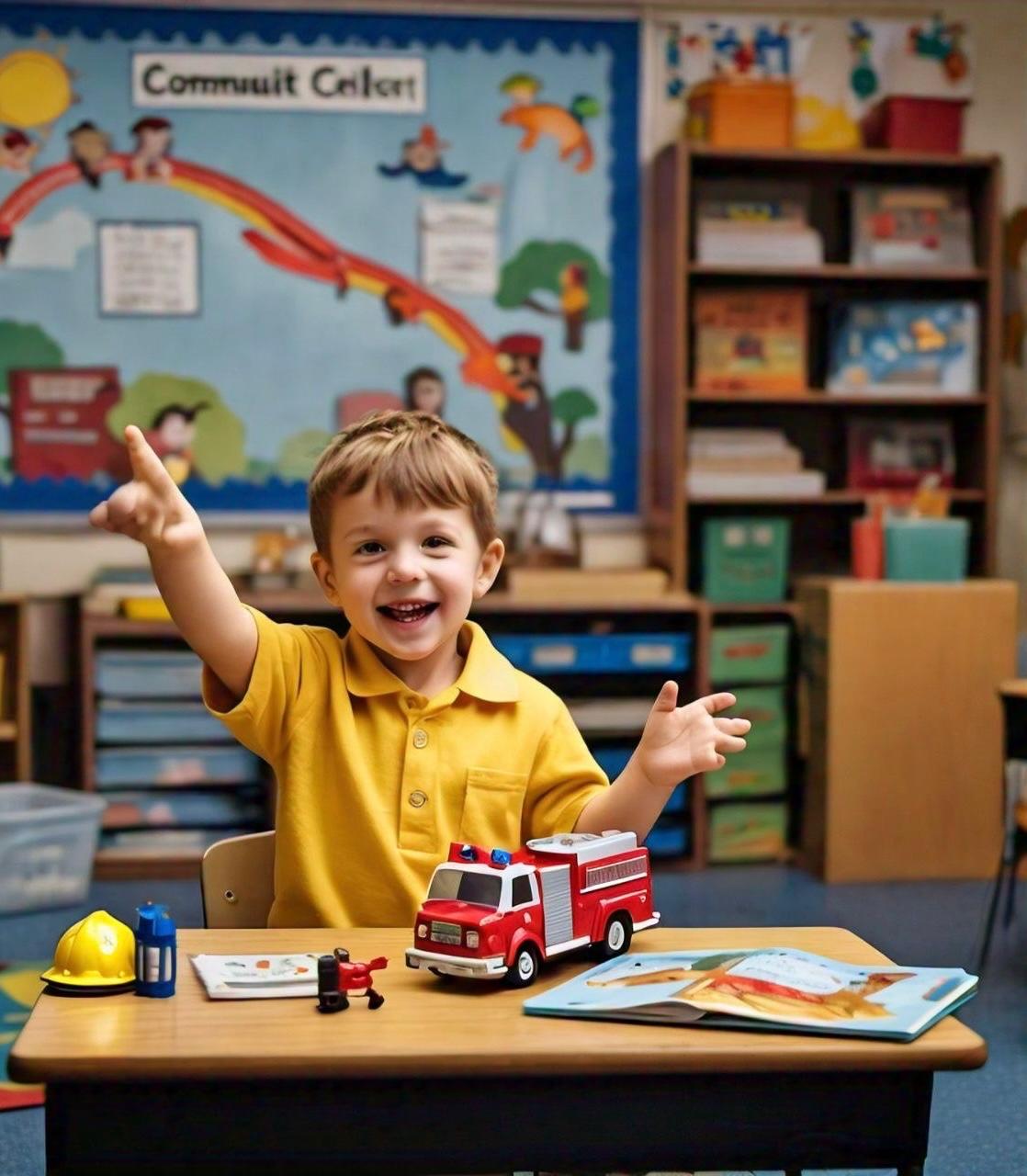
11. Community Helper Field Trip
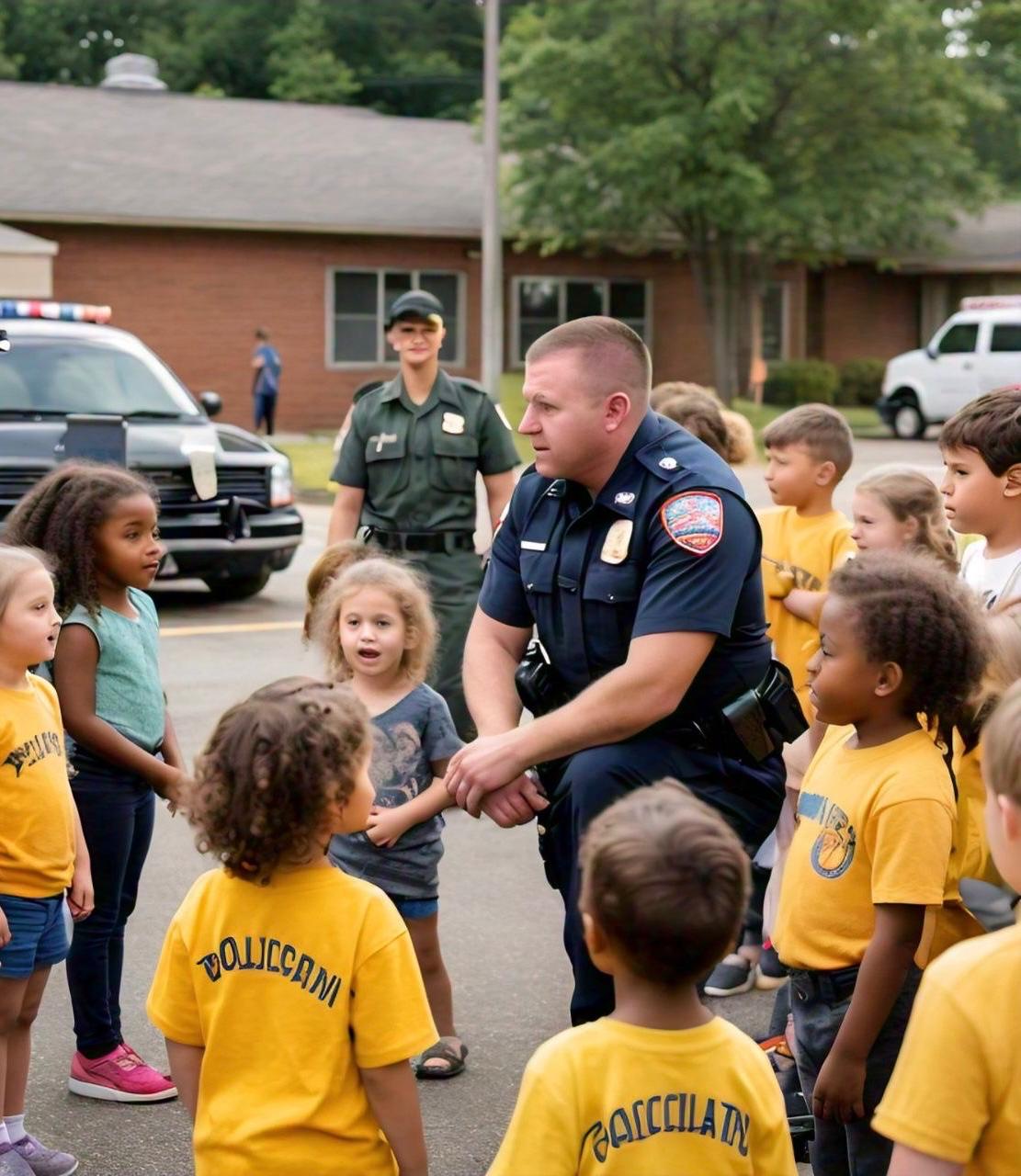
Activity Overview:
Plan a field trip to a local fire station, police station, hospital, or another place where community helpers work. During the visit, children can learn about the daily tasks of the helpers and see their tools and equipment up close.
Learning Outcome:
Field trips provide real-world experiences that help children connect classroom learning with actual community helpers, making the lessons more tangible and memorable.
Discussion Points:
- What did you see on the field trip?
- How do these helpers keep our community safe?
12. Create a Community Helpers Collage
Activity Overview:
Provide magazines, newspapers, or printable images of community helpers and their tools. Kids can cut out pictures and create a collage that represents the various helpers in the community.
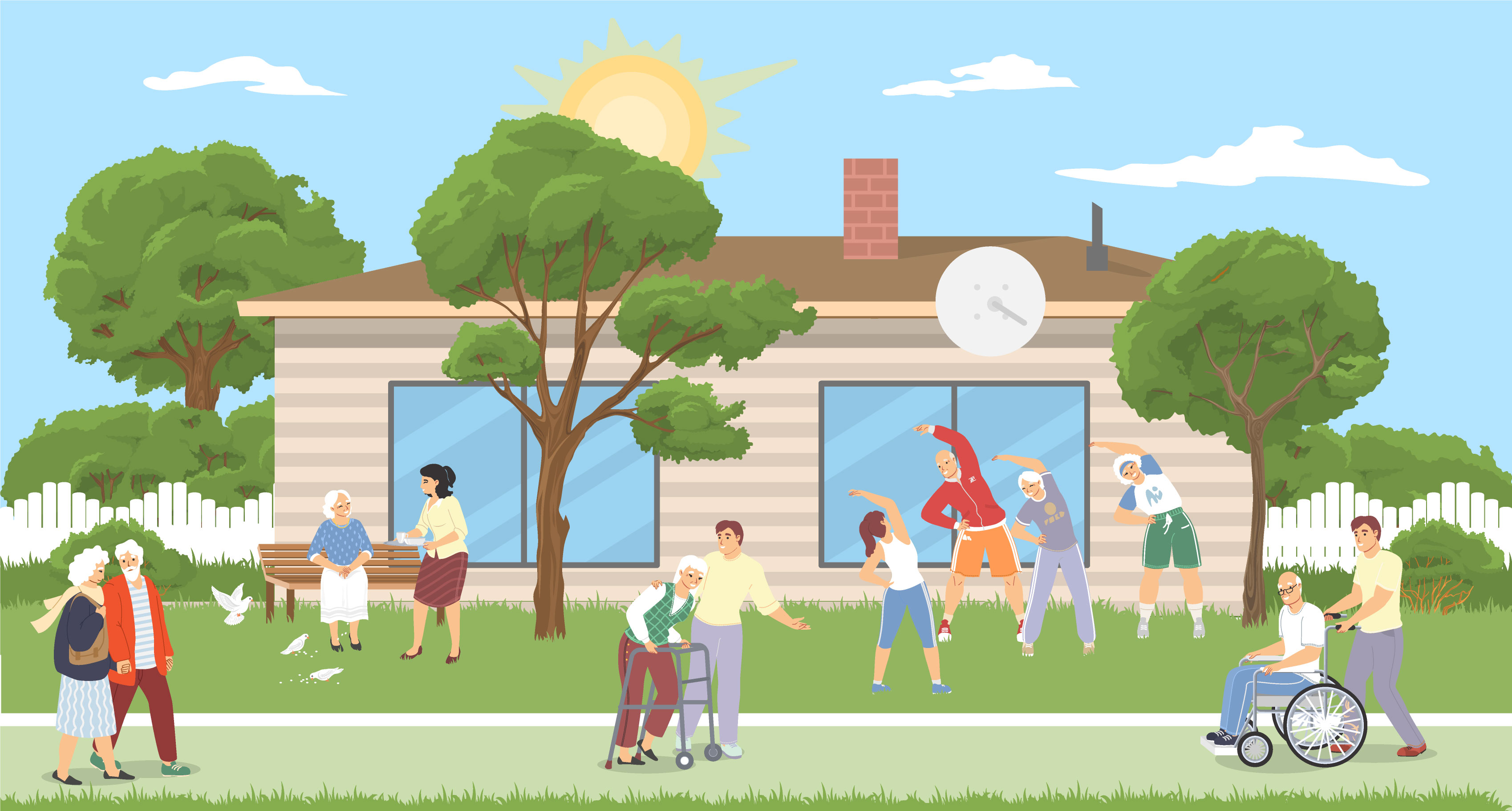
Materials Needed:
- Magazines, newspapers, or printed images
- Scissors
- Glue
- Large paper or poster board
Learning Outcome:
This creative activity enhances fine motor skills, encourages artistic expression, and reinforces recognition of community helpers and their tools.
Discussion Points:
- Which helpers did you include in your college?
- How do they contribute to the community?
13. Community Helpers Bingo
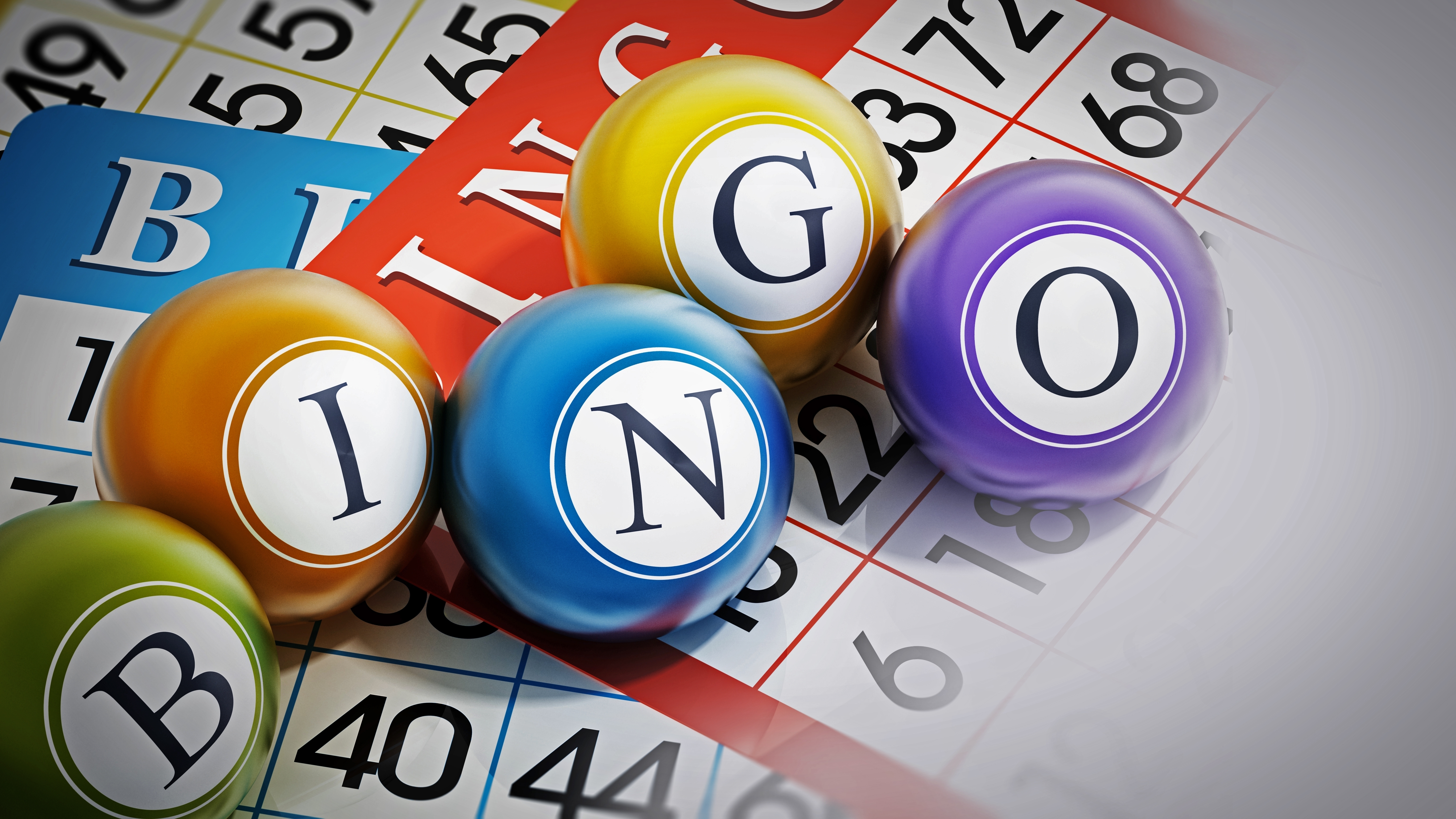
Activity Overview:
Create a Bingo game with pictures or symbols representing various community helpers and their tools. As you call out the names or descriptions, kids can place markers on the corresponding images on their Bingo cards.
Materials Needed:
- Bingo cards with images of community helpers and their tools
- Markers or tokens
Learning Outcome:
This activity builds listening skills, improves attention to detail, and reinforces the names and roles of different community helpers.
Discussion Points:
- Which community helper did you mark on your Bingo card?
- What do they do for our community?
14. Community Helpers Matching Game
Activity Overview:
Create a matching game where children match pictures of community helpers with the tools they use or the places they work. For example, a firefighter with a hose, a doctor with a stethoscope, or a teacher with a classroom.
Materials Needed:
- Printed pictures or cards with images of community helpers, their tools, and their workplaces
- Scissors
- Laminating sheets (optional for durability)
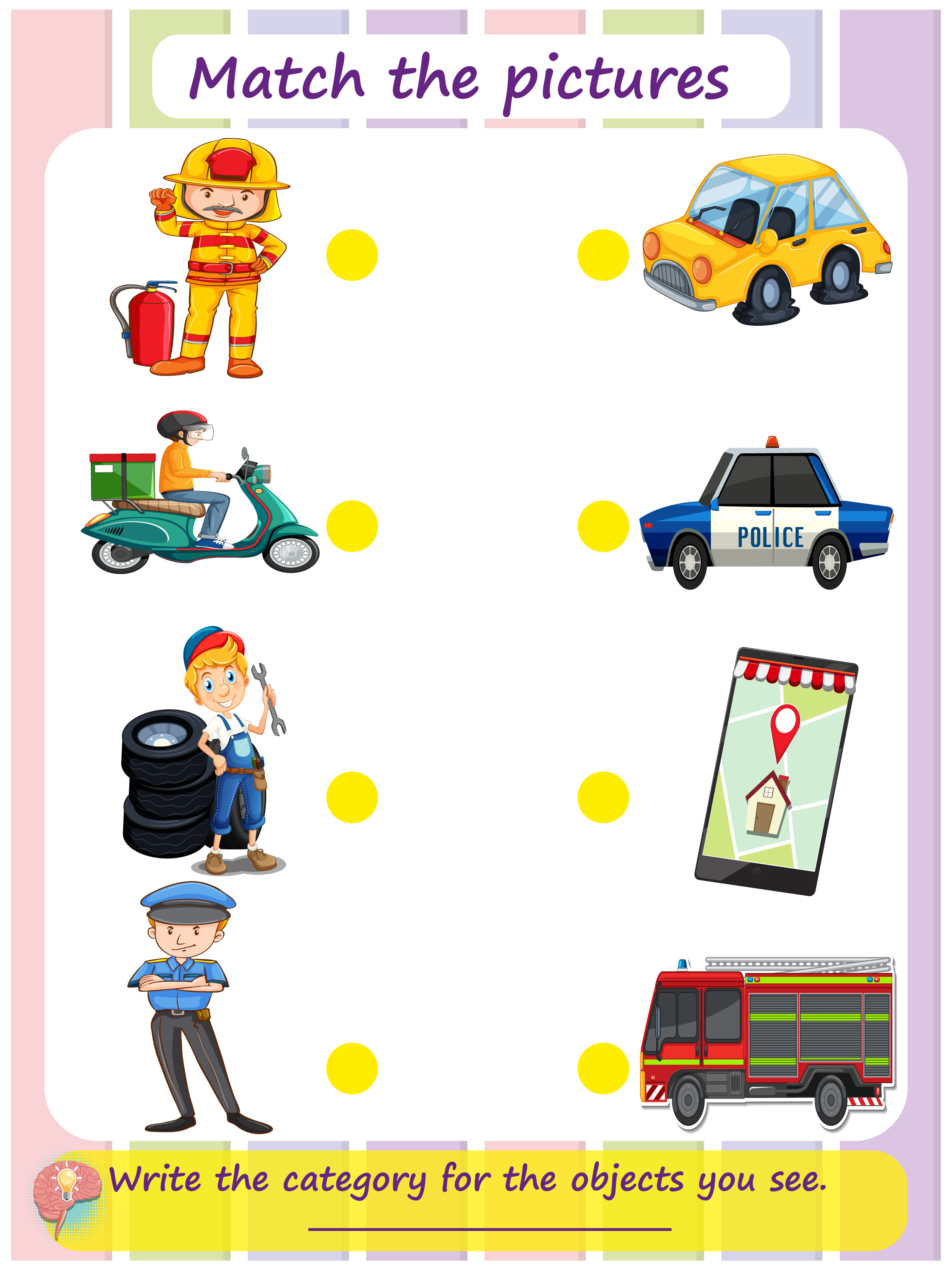
Learning Outcome:
This game improves memory and recognition skills while reinforcing the connection between helpers and their tools or workplaces.
Discussion Points:
- How does each tool help the community helper do their job?
- Can you think of other tools that these helpers might use?
15. Visit from a Community Helper
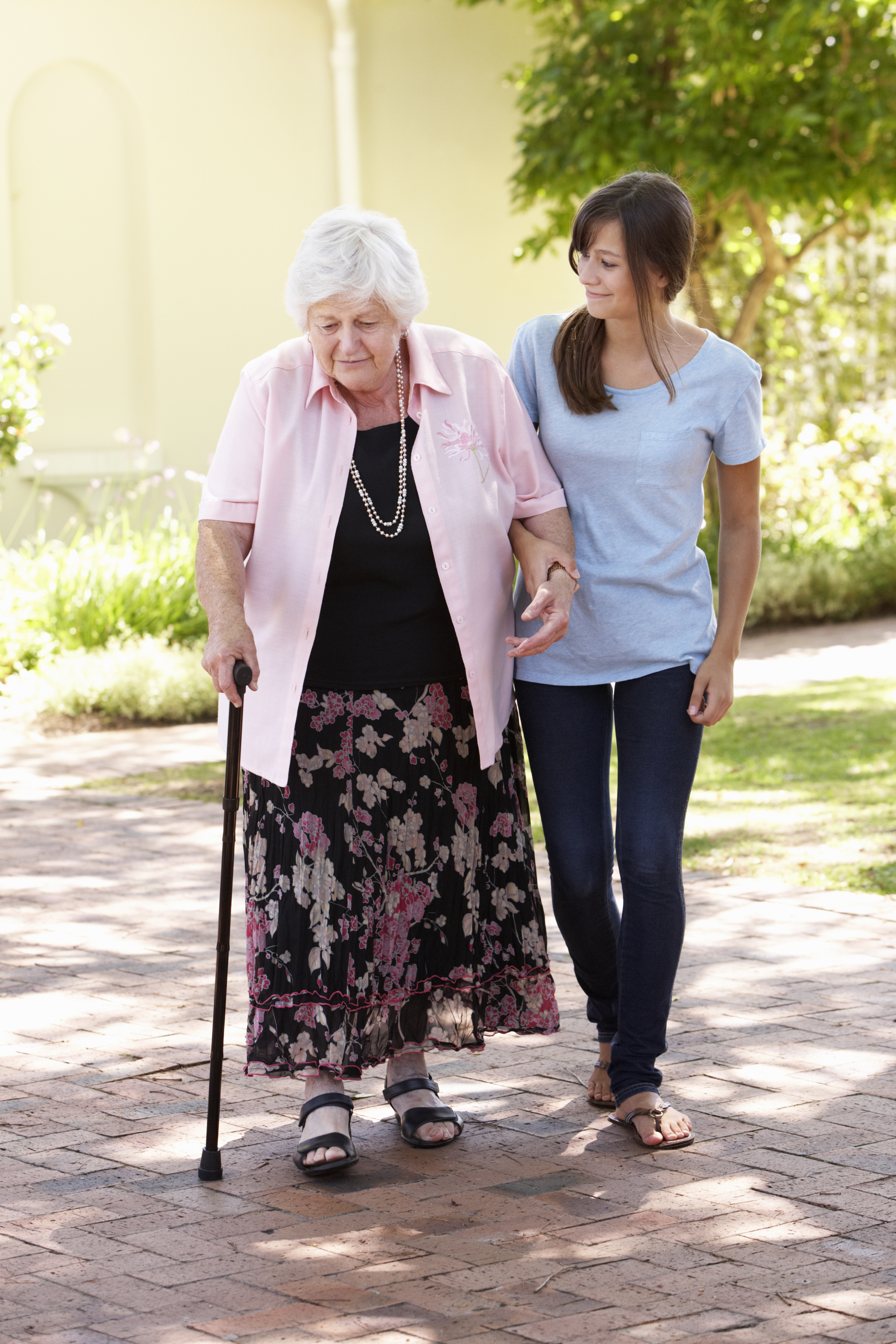
Activity Overview:
Arrange for a local community helper, such as a firefighter, police officer, or nurse, to visit the classroom or community center. They can talk about their job, show their equipment, and answer questions from the kids.
Learning Outcome:
Meeting a community helper in person helps children make a real-life connection to what they have learned. It also gives them an opportunity to ask questions and learn directly from someone in the field.
Discussion Points:
- What did you learn from the visit?
- How does this community helper keep us safe or healthy?
Conclusion
Engaging children in hands-on activities about community helpers not only fosters creativity and critical thinking but also instills a sense of appreciation and understanding of the vital roles these individuals play in our daily lives. By participating in these fun and educational activities, kids can develop empathy, social awareness, and a deeper connection to their communities, all while learning valuable life lessons. Through role-playing, creative projects, and interactive experiences, children can explore the world of community helpers in a meaningful and memorable way.
Looking for a comprehensive parenting guide to ensure you are on the right track? Explore a wealth of parenting wisdom and educational insights in Moonpreneur’s blogs. Additionally, you can join our programs that nurture the next generation of innovators. Book a free trial now!


























According to Journal of Community Engagement and Higher Education, community service can enhance academic performance and social skills in children. As a teacher, I recommend every school should indulge these hands- on activities as a part of their curriculum in order to make students aware of the community helpers!!
By reading this blog, I was expecting to get engaging activity ideas for my 5 years old kid. But some hands-on activities mentioned in the blog might be complex and emotionally challenging for kids. It would be better if activities are categorized as per different age groups.